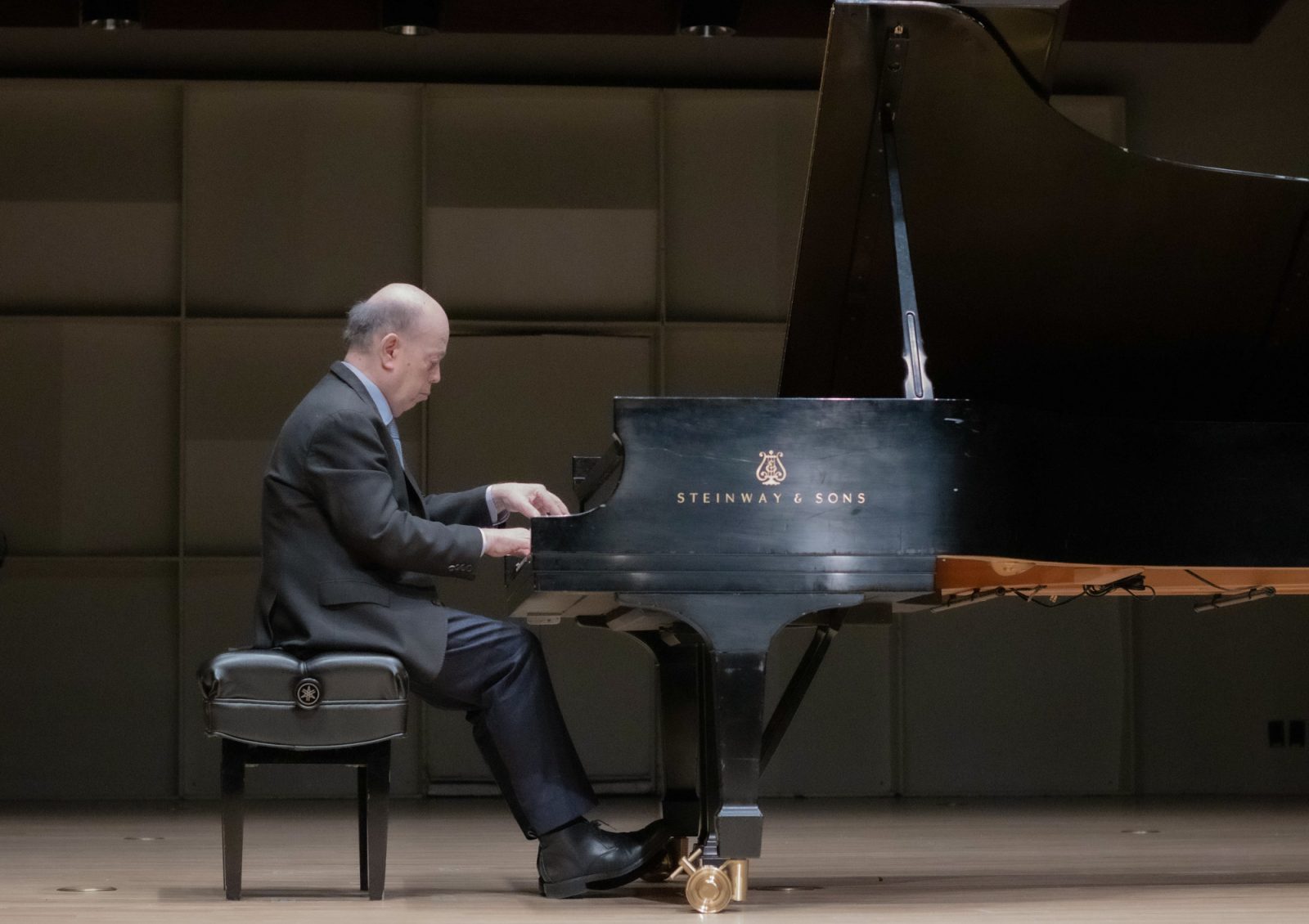Anticipation hummed beneath scattered whispers and shuffling programs, and the concert hall was aglow with excitement. A Steinway grand piano stood center-stage under golden light, alone, waiting with the eager audience for its other half to enter stage left.
Boaz Sharon, a professor of piano in the College of Fine Arts, presented a Piano Faculty Recital in the CFA Concert Hall on Thursday. Musicians and non-musicians alike attended the free event to watch BU’s very own Steinway Artist, a title bestowed to only the best pianists who choose to play exclusively on Steinway pianos.

Sharon’s program featured six compositions, including some of his favorites: “Passecaille” by François Couperin, “Rhapsody in Blue” by George Gershwin (Solo Piano Version) and “Rudepoêma” by Heitor Villa-Lobos — a piece renowned as one of the most difficult pieces to play live in the expansive piano repertoire.
“One should give oneself many, many months in preparation if one is to perform it,” Sharon said, regarding the preparation of a particularly technical piece such as “Rudepoêma.”
He said that regardless of a piece’s objective complexity of composition, any classical pianist would agree: “…there are no easy pieces, all of them are difficult.”
Born in Tel Aviv, Israel, Sharon began his musical journey at the ripe age of five, when he began playing songs by ear on the upright piano in his kindergarten classroom. By 12 years old, he had been offered a scholarship to study composition at a Parisian conservatory.
“I know that at 12 I was writing music, but it was scribbles,” said Jackson Carruthers, a second-year performance diploma student for piano performance in CFA. “It was not winning me any composition scholarships, that’s for sure.”
Carruthers has spent the past two years studying piano under Sharon’s tutelage. In between lessons, he has been able to “pick [Sharon’s] brain” and hear many anecdotes from his “fascinating life.”
Carruthers recalled a memorable anecdote from his teacher’s many adventures: Sharon’s impromptu duet with the legendary Martha Argerich, who is regarded as one of the best pianists of her time.
Sharon, a teenager at the time, went to lunch one day with Stefan Askenase, his deeply influential piano teacher from his time in Brussels. Askenase invited another one of his students, Argerich, who was already famous, to lunch with them and to play afterward the complex concerto Sharon had been practicing.
Argerich sight-read the piece the moment her eyes hit the paper — a very difficult feat.
According to Carruthers, the two pianists have kept in touch — Sharon attended Argerich’s 80th birthday party two years ago.
“Performance-wise, he’s very delicate,” said Emma Tio, a freshman in CFA who studies piano beneath Sharon. Tio expressed her appreciation for her instructor’s decades of refinement and subsequent mastery of the instrument.
“The way he caresses the piano is really like a dance,” she said.
Tio and Carruthers describe Sharon’s teaching style as “detail-oriented” and “analytical.” They also said the candor and scrupulousness embedded in his pedagogy is what takes their playing from good to great to even better.
“That’s what is supposed to happen in piano lessons,” Sharon said, describing the music instructor’s duty and power to imprint on their pupils. “Your teacher is supposed to guide you.”
Outside of his lessons, Sharon watches the news, reads biographies and strives to better his skills. Using the same discipline and work ethic that earned him his laurels, he works on pieces until he has mastered them and moves towards his next conquest of the “endless” piano literature domain.
“The fact that he’s still really intent on playing at a high level, getting better and practicing what he preaches … I have so much respect for him as a teacher because I understand that he will never tell me to do something he can’t do himself,” Carruthers said.
Sharon is an avid traveler, for leisure as well as business. From South Korea to Germany to China, Sharon’s anecdotes are worldwide. Having lived, studied and mentored all around the globe, Sharon’s list of adventures, like his accolades, is a long one.
When asked if he has ever been referred to as a virtuoso, Sharon replied, “I don’t consider myself to be one, but I’ve heard that said to me, and of course, who doesn’t like to get a compliment?”



















































































































